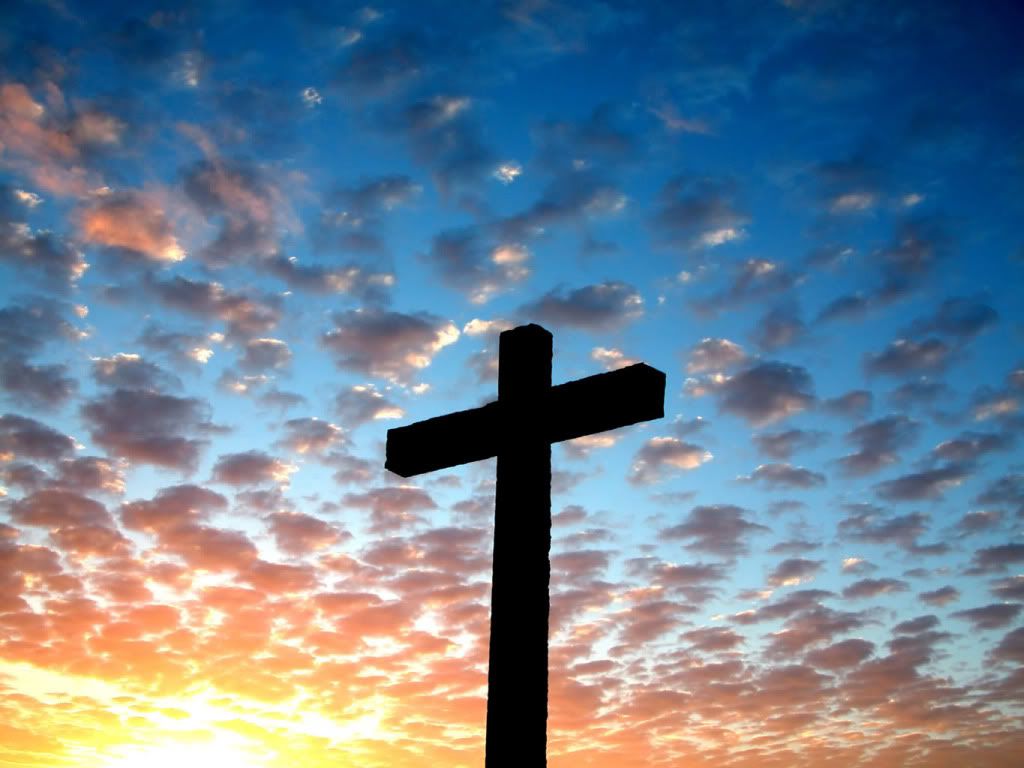If it is our habit to demand of God answers, solutions, explanations, we may find ourselves traveling a broad intellectual highway that leads to destruction. If it is really life we want, we must accept the narrow way and the very low gate. The questions, the problems not solved, the mystery not explained will be for the one who would press on to know the Lord. He is called by a still, small voice to humility and poverty of spirit --- only by that road will he be allowed to see God. He must believe Him even when carrying in his heart the unanswered question. The problem he desperately wants solved is God’s means of getting his attention –not necessarily that He may reveal its solutions but most certainly that He may reveal Himself to him. But let him not forget – it is the pure in heart who see God (see Matt. 5:8).
The Music of His Promises by Elisabeth Elliot
Sunday, October 17, 2010
Too Proud for the Low Gate
Sunday, October 10, 2010
Too Strong to Be Crucified
Jesus Christ, we are told, was “crucified in weakness.” When we approach the table of the Lord in Holy Communion, or when in any way at all we identify ourselves as Christians, we are letting Christ take us, with our purposes, and offer us, as He did His own body, up to His Father.
The greater our consciousness of weakness, sinfulness, and abject need, the more perfectly we can let Christ take us for that offering.
The man or woman who claims some autonomy, some right to himself, some independence, some existence of his won, is too strong. Too strong to need a Savior, too strong to flee to His cross for refuge, too strong to be crucified with Christ. How then shall he live in Christ, how shall Christ live in him?
When I survey the wondrous Cross
On which the Prince of Glory died,
My richest gain I count by loss,
And pour contempt on all my pride.
Isaac Watts
The Music of His Promises by Elisabeth Elliot
Sunday, October 3, 2010
Too Rich to Follow Him
In the forests of Ecuador I soon learned that there were journeys I could not make if I wanted to carry baggage. Traveling narrow, muddy, and often steep trails on foot was impossible if I was heavily loaded.
So it is with the spiritual journey. We cannot make it if we insist on taking along everything we think indispensable. A rich young man was attracted to Jesus and contemplated joining His company, but Jesus spoke plainly of the necessary condition: Sell all you have first.
If he had not had much, perhaps he would have laid it down readily. But he was too rich to follow Jesus. He turned away, sorrowful.
We may be willing to part with almost everything God is asking us to relinquish, but perhaps we are clutching one thing tightly—“all but this, Lord.” “Lay it down,” Jesus says. “Let it go.” If we refuse, too rich to follow Him, we have chosen a greater poverty in the end.
The Music of His Promises by Elisabeth Elliot
Sunday, September 26, 2010
Looking at Graves
Matthew tells us in the last chapter of his Gospel that the two Marys came early in the morning, “to look at the grave.” We can picture the sorrowful scene –two women in the gray dawn standing helplessly, contemplating the tomb. There was nothing left to hope for, nothing to see but a rock. We can see their drawn faces, bowed heads, the sag of their shoulders. Can we possibly picture those faces when there came a sudden earthquake, the descent of an angel, and the stone was rolled away from the grave? The angel was so dazzling, the guards (tough men, surly, and not the least sorrowing like the women) collapsed in terror. The angel addressed the women: “You ..have nothing to fear… He has been raised…” (Matt. 28:5,7). A few minutes later Jesus suddenly stood in their path.
We sometimes find ourselves looking at a “grave” –the end of all our hopes. We are helpless, defeated. Our faces are long, our shoulders droop. What difference it would make then if, by faith, we would lift up our eyes to see the bright angel and the risen Savior. We really have nothing to fear – He has risen, exactly as He said. What a defeat His crucifixion seemed. What a triumph His resurrection was – and is, forever.
Don’t look at the grave. Look up. Jesus stands risen beside you, alive forever! Then think of His comforting word: “And be assured, I am with you always, to the end of time” (Matt. 28:20).
Sunday, September 19, 2010
Unimaginable Solutions
Spectators at the cross of Calvary imagined a dramatic escape or rescue as the proof of Jesus’ kingship. God had an infinitely greater demonstration in mind. The Son would not manage to escape from the hands of His captors or from the nails and wood that held Him, nor would someone else come to His rescue. He would go through the last extremity of what it means to be human, and by that very means, by death itself, would destroy the power of death. He would become, by His obedient dying , the “Death of Death” and “Hell’s Destruction.”
When we, in our "lesser miseries," plead for escape or rescue, what unimaginable "solutions" God has stored up for us! But often, in response to our pleadings, the word is Trust Me.
Sunday, September 12, 2010
What is Trust?
To the unbeliever, the notion of “trust” in God is a challenge to Him to grant what one wants. When Jesus hung nailed to the cross, passerby hurled abuse at Him: “Come down. Save yourself!” The chief priests, lawyers and elders (learned, logical leaders) mocked Him: “King of Israel, indeed! Let Him come down now from the cross and then we will believe Him. Did He trust in God? Let God rescue Him.” (Matt. 27:42-43).
Real trust yields utterly to the one trusted. All desire is turned over to that one, believing his ability to manage, control, and finally to accomplish what is best. When we pray, we should beware lest we line ourselves up with the mockers of Jesus---“If You do such and such, then I will trust You!” We need to learn rather to let God rescue us in His own way. It may not be escape from suffering, but death---followed by so much more glorious a rescue---resurrection!
Lord, teach me this trust.
Sunday, September 5, 2010
The Way Appointed
What agonies we would spare ourselves if we would remember that ours, too, is a way appointed. We need not ever imagine that our circumstances are in any other hands than those that held the beloved Son obedient unto death.


